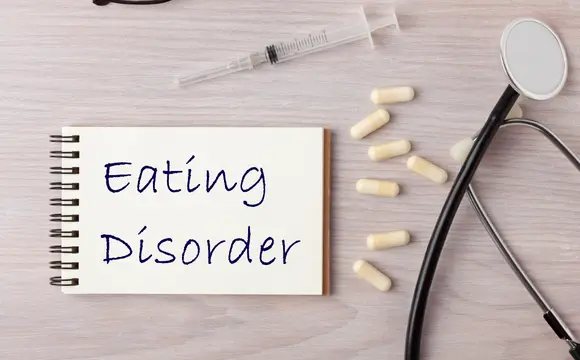Eating or eating-related behavior is disrupted in eating disorders,
which often include:
- Modifications in people’s eating habits or amounts
- The steps individuals take to stop food from being absorbed (for example, making themselves vomit or taking a laxative)
Unusual eating patterns must persist for a while, seriously disrupt the person’s physical health, and ability to perform at work or school, or significantly impact interactions with other people in order to be classified as a disorder.
Most frequently, mood and anxiety disorders, obsessive-compulsive disorder, and issues with alcohol and other drugs co-occur with eating disorders.
There is evidence that suggests that some people are more likely to develop eating disorders than others, but eating disorders can also affect people who have no family history of the problem.
Treatment should address any dietary, behavioral, psychological, or other medical issues that arise. The latter can include heart and digestive issues as well as other potentially catastrophic illnesses as a result of starvation or purging behaviors.
Treatment resistance, denial of an eating or weight issue, or concern about altering eating habits are all frequent.
However, people with eating disorders can restart healthy eating habits and regain their emotional and psychological well-being with the right medical care.
Eating disorders include:
- Anorexia nervosa is defined by a relentless pursuit of thinness, a warped perception of one’s body, a severe fear of fat, and dietary restriction that results in noticeably low body weight. People who have anorexia nervosa may restrict their food intake but they may also binge eat and then purge as a kind of retaliation (for example, by making themselves vomit or using laxatives). The disorder can cause sufferers to restrict their food intake to the point that it negatively impacts their health. Although the term “anorexia” refers to a loss of appetite, many anorexia Nervosa sufferers do not begin to feel hungry until they are extremely underweight.
- When someone has an avoidant/restrictive food intake disorder, they may eat very little food and/or refrain from eating particular foods without having the same concerns about their appearance or weight as those who have bulimia nervosa or anorexia nervosa. People who have this illness frequently lack the desire to eat, are extremely selective eaters, and avoid certain food groups. For instance, they might abstain from foods that have a certain color, texture, or smell. Some people worry that eating could lead to negative outcomes like choking or vomiting.
- When someone has a binge eating disorder, they often consume far more food than the majority of people would in the same situation and at the same time. People who binge feel as though they have lost control of their food and are distressed by these bouts. Purging or other attempts to make up for the excessive food consumed during a binge are not common.
- Large amounts of food are frequently consumed quickly during bouts of bulimia nervosa, which are then followed by attempts to purge the extra food. People might force themselves to vomit or use laxatives, for instance.
- Pica frequently consumes items that are not foods.
- Food regurgitation after eating is a symptom of rumination disorder.
Women, particularly younger women, are more likely than men to suffer from eating disorders.
If you are suffering from any such disorders, Ishkama is here to help you!

